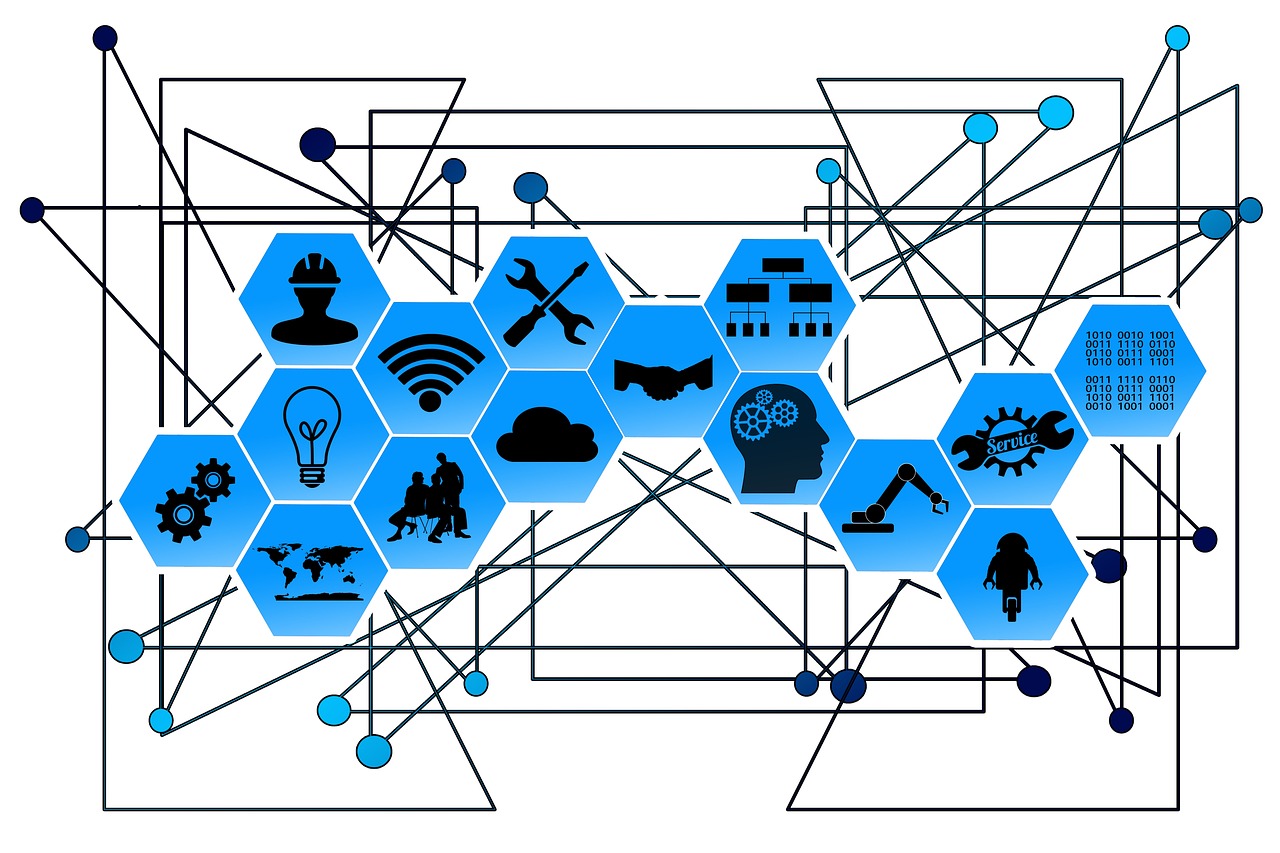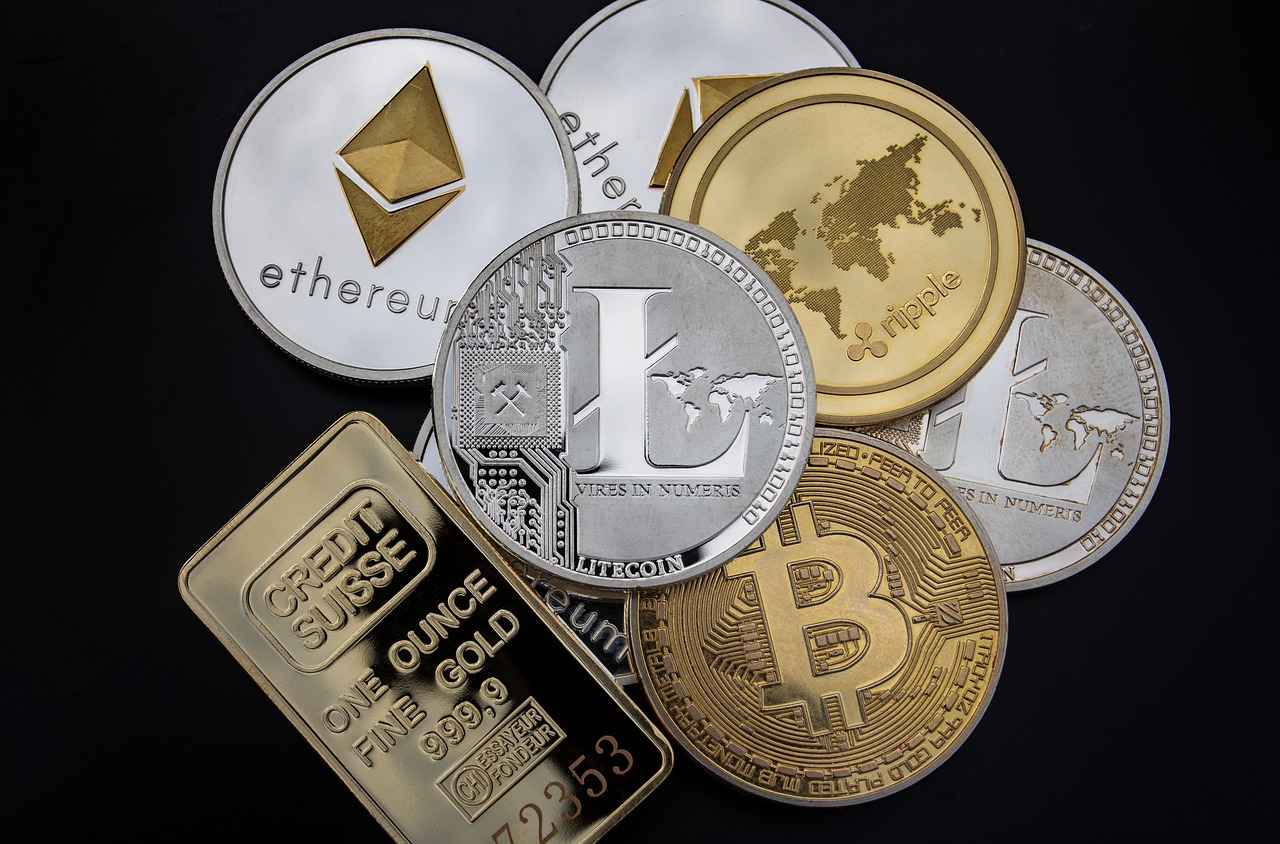How Blockchain Technology is Changing the Travel Industry
In recent years, blockchain technology has emerged as a game-changer across various sectors, and the travel industry is no exception. Imagine a world where your travel transactions are not only secure but also transparent and efficient. Sounds appealing, right? With blockchain, this is becoming a reality. By leveraging the power of decentralized ledgers, the travel sector is undergoing a profound transformation that enhances transparency, boosts security, and streamlines operations. This article delves into the ways blockchain is reshaping the travel landscape, uncovering its benefits, challenges, and the exciting future that lies ahead.
One of the most significant advantages of blockchain technology is its ability to provide a decentralized ledger. This means that every transaction made within the travel industry is recorded in a way that is both transparent and immutable. For travelers, this fosters a sense of trust when booking flights, hotels, or other services. Imagine being able to see every step of your transaction, knowing that it cannot be altered or tampered with. This level of transparency not only builds confidence among customers but also strengthens relationships with service providers and regulatory bodies. In an industry often plagued by hidden fees and unclear terms, blockchain shines a light, making everything clear and straightforward.
In an age where data breaches are becoming all too common, the travel industry must prioritize the security of personal information and financial transactions. Blockchain technology offers a robust solution by utilizing encryption and decentralized storage. This significantly reduces the risk of fraud and data breaches, ensuring that travelers' sensitive information remains safe. Think of blockchain as a high-tech vault, where your data is locked away, accessible only by you. This not only protects your information but also enhances your overall travel experience. With peace of mind regarding your data security, you can focus on enjoying your travels.
Another fascinating application of blockchain in the travel sector is the use of smart contracts. These self-executing contracts automate and enforce agreements between parties, making processes like bookings and payments much more efficient. For instance, when you book a hotel room, a smart contract can automatically execute payment once you check in, eliminating the need for lengthy payment processes. This not only saves time but also reduces operational costs for businesses. Imagine never having to worry about whether your payment went through or if your reservation is secure; smart contracts provide that assurance.
With the implementation of smart contracts, the likelihood of disputes diminishes significantly. Why? Because the terms of the agreement are clearly defined and automatically executed. This fosters a more trustworthy relationship between travelers and service providers. If something goes wrong, the contract can provide a clear record of what was agreed upon, making resolution straightforward. Travelers can feel confident knowing that their rights are protected, and service providers can operate with greater transparency.
Blockchain technology also revolutionizes payment processes, especially for cross-border transactions. Traditional payment methods often come with high transaction fees and delays, but blockchain allows travelers to pay for services in various currencies quickly and affordably. Imagine being able to book a hotel in Europe using your home currency without worrying about conversion fees or delays. Blockchain facilitates faster and cheaper payments, making travel more accessible and enjoyable.
Identity verification is another area where blockchain shines. By allowing for secure and efficient verification, travelers can maintain control over their personal information. This simplifies check-in processes at airports and hotels, reducing wait times and enhancing the overall travel experience. Think of it as having a digital passport that verifies your identity without the need for countless documents. This not only saves time but also adds a layer of security that traditional methods lack.
Tokenization is a concept that allows physical assets, such as hotel rooms and airline seats, to be represented as digital tokens on the blockchain. This innovation increases liquidity and flexibility in the travel market. For example, instead of booking an entire hotel room, travelers could purchase a token representing a share of the room, making luxury accommodations more accessible. Tokenization opens the door to new investment opportunities and enhances the overall travel experience.
Imagine being able to invest in shared ownership of luxury experiences, like private villas or yachts. Through tokenization, this dream can become a reality. Travelers can pool resources, making high-end travel more accessible and affordable. This concept not only democratizes luxury travel but also creates a sense of community among travelers who share similar interests.
Blockchain can also revolutionize loyalty programs. Instead of traditional points systems that can be complicated and restrictive, blockchain allows customers to earn and redeem tokens across various travel services. This enhances customer engagement and satisfaction, as travelers can easily use their rewards without the hassle of navigating different programs. Imagine a world where your loyalty is rewarded seamlessly, making every trip even more enjoyable.
Despite its immense potential, blockchain technology faces several challenges that need to be addressed for widespread adoption in the travel sector. These include scalability issues, regulatory hurdles, and the need for industry-wide collaboration. As travel transactions increase, blockchain networks may struggle to process large volumes of data quickly, necessitating advancements in technology to enhance scalability and efficiency.
Scalability is a significant concern as the volume of travel transactions continues to grow. Blockchain networks must evolve to handle increased data loads efficiently. Without this evolution, the benefits of blockchain may not be fully realized, leading to potential bottlenecks in service delivery.
Navigating the complex regulatory landscape is crucial for blockchain implementation in travel. Companies must ensure compliance with local laws and regulations to avoid legal challenges. This requires ongoing collaboration between blockchain developers, travel companies, and regulatory bodies to create a framework that supports innovation while protecting consumers.
- What is blockchain technology? Blockchain is a decentralized digital ledger that records transactions across multiple computers securely.
- How does blockchain improve security in travel? By using encryption and decentralized storage, blockchain significantly reduces the risk of fraud and data breaches.
- What are smart contracts? Smart contracts are self-executing contracts with terms directly written into code, automating processes like bookings and payments.
- Can blockchain enhance loyalty programs? Yes, blockchain allows for more flexible and rewarding loyalty programs through the use of tokens.
- What challenges does blockchain face in the travel industry? Key challenges include scalability, regulatory compliance, and the need for industry collaboration.

Enhancing Transparency in Transactions
In the ever-evolving travel industry, transparency is not just a buzzword; it’s a fundamental necessity. With countless transactions happening every second—from booking flights to reserving hotels—ensuring that these transactions are transparent and trustworthy is crucial. Enter blockchain technology, a game-changer that offers a decentralized ledger system, which means that every single transaction is recorded and can be viewed by all relevant parties. This level of transparency fosters a culture of trust among travelers, service providers, and regulatory bodies.
Imagine booking a flight and having the peace of mind that every detail of your transaction is securely logged and accessible. With blockchain, this is not just a dream; it's a reality. Each transaction is immutable, meaning it cannot be altered or deleted, which significantly reduces the chances of fraud. For instance, if a traveler books a hotel room, the details of that booking—including the price, date, and terms—are recorded on the blockchain. This information is available for verification by both the traveler and the hotel, creating a transparent environment where both parties can feel secure.
Moreover, the transparency provided by blockchain can help in resolving disputes quickly and fairly. When issues arise, such as overbooking or discrepancies in pricing, the immutable records can be referenced to determine what actually happened. This not only saves time but also enhances the overall customer experience. In a world where travelers expect instant gratification, having a transparent process can make all the difference.
Let’s break down some of the key advantages of transparency in transactions facilitated by blockchain:
- Trust Building: With transparent transactions, customers are more likely to trust service providers, leading to increased loyalty and repeat business.
- Reduced Fraud: The immutable nature of blockchain records makes it nearly impossible for fraudulent activities to go unnoticed.
- Streamlined Processes: Transparency leads to quicker resolutions of disputes, enhancing the efficiency of operations within the travel sector.
In summary, blockchain technology is paving the way for a new era of transparency in the travel industry. By ensuring that all transactions are clear and accessible, it not only builds trust but also enhances the overall travel experience. As more companies recognize the benefits of integrating blockchain, we can expect to see a significant shift in how transactions are managed, ultimately leading to a more secure and efficient travel ecosystem.

Improving Security and Data Privacy
In today’s digital age, where data breaches and identity theft are becoming alarmingly common, the travel industry is in dire need of robust security measures. Blockchain technology emerges as a game-changer in this regard, offering a level of security that traditional systems simply cannot match. By utilizing advanced encryption techniques and decentralized storage, blockchain ensures that personal data and financial transactions are shielded from unauthorized access. Imagine a vault where your sensitive information is locked away, and only you hold the key. That's the essence of blockchain's approach to data privacy.
One of the most striking features of blockchain is its decentralized nature. Unlike conventional databases that store information in a single location, blockchain distributes data across a vast network of computers. This means that even if one part of the system is compromised, the overall integrity of the information remains intact. This decentralized architecture not only enhances security but also builds trust among travelers who are increasingly concerned about their data privacy.
Moreover, blockchain allows travelers to maintain control over their personal information. With traditional systems, personal data is often stored and managed by third-party entities, leaving it vulnerable to breaches. In contrast, blockchain enables users to share only the necessary information with service providers, minimizing the risk of data exposure. For example, when checking into a hotel, a traveler can provide only the information required for the booking, without revealing additional personal details that aren't necessary for the transaction. This selective sharing empowers users and ensures their privacy.
To illustrate the benefits of blockchain in enhancing security, consider the following table that compares traditional travel data management methods with blockchain technology:
| Feature | Traditional Systems | Blockchain Technology |
|---|---|---|
| Data Storage | Centralized | Decentralized |
| Data Access | Third-party control | User-controlled |
| Fraud Risk | High | Low |
| Transaction Speed | Variable | Fast and efficient |
In addition to securing personal data, blockchain technology significantly reduces the risk of fraud in travel transactions. By providing an immutable record of all transactions, blockchain makes it nearly impossible for malicious actors to alter or falsify data. Each transaction is time-stamped and linked to previous ones, creating a transparent trail that can be easily audited. This level of accountability not only deters fraud but also enhances the overall credibility of the travel industry.
As we look ahead, it’s clear that the integration of blockchain technology in the travel sector is not just a trend but a necessity. With travelers becoming increasingly aware of the importance of data security and privacy, businesses that adopt blockchain solutions will likely gain a competitive edge. The future of travel is not only about exploring new destinations but also about ensuring that our personal information remains safe and secure. So, as you plan your next adventure, you can rest assured that blockchain is paving the way for a more secure travel experience.
- What is blockchain technology? - Blockchain is a decentralized digital ledger that records transactions across many computers, ensuring that the information is secure and cannot be altered retroactively.
- How does blockchain improve data privacy? - Blockchain allows users to control their personal data, sharing only what is necessary for transactions without giving third parties access to all their information.
- Can blockchain prevent fraud in travel? - Yes, by providing an immutable record of transactions, blockchain makes it extremely difficult for fraudulent activities to occur.
- Is blockchain technology widely adopted in the travel industry? - While it is still emerging, many companies are beginning to explore and implement blockchain solutions to enhance security and efficiency.

Smart Contracts in Travel Agreements
Imagine booking a vacation where every detail is handled seamlessly, without the usual hassles of miscommunication or unexpected fees. Smart contracts are revolutionizing travel agreements by automating processes and ensuring that all parties adhere to the terms set forth. These self-executing contracts, built on blockchain technology, automatically execute actions when predefined conditions are met. For instance, once a traveler books a flight, the smart contract can automatically issue tickets, process payments, and even provide real-time updates about any changes in the itinerary.
One of the most significant advantages of smart contracts in the travel industry is their ability to reduce the need for intermediaries. Traditionally, travel bookings involve multiple parties—agents, airlines, hotels, and payment processors. Each of these players takes a cut, which can lead to inflated prices for travelers. However, with smart contracts, transactions can be conducted directly between the traveler and service providers, thereby minimizing costs. This direct interaction not only enhances efficiency but also fosters a sense of trust, as all terms are clearly defined and visible on the blockchain.
Furthermore, consider the scenario of a hotel reservation. If a traveler books a room and the hotel fails to honor the booking due to overbooking, the smart contract can automatically issue a refund or provide compensation based on the agreed terms. This level of transparency and automation reduces the chances of disputes between travelers and service providers, making for a more enjoyable experience. In fact, the clarity that comes with smart contracts means that both parties know exactly what to expect, eliminating the gray areas that often lead to misunderstandings.
However, it's essential to address the technical aspects that come with implementing smart contracts. While the concept is straightforward, the actual execution requires robust technology and a well-defined framework. Companies looking to adopt smart contracts must invest in the necessary infrastructure and ensure that all stakeholders are on board with the new system. This shift demands a collaborative effort within the industry to create standards that facilitate the smooth operation of smart contracts.
In summary, smart contracts have the potential to transform travel agreements by enhancing efficiency, reducing costs, and fostering trust between travelers and service providers. As the travel industry continues to evolve, embracing these innovative solutions will be crucial in creating a more streamlined and user-friendly experience for everyone involved.
- What are smart contracts? Smart contracts are self-executing contracts with the terms of the agreement directly written into code, allowing for automatic execution when conditions are met.
- How do smart contracts improve the travel experience? They automate processes, reduce costs by eliminating intermediaries, and ensure transparency and trust between parties.
- Are there any challenges with implementing smart contracts in travel? Yes, challenges include the need for industry-wide collaboration, technological infrastructure, and regulatory compliance.

Reducing Disputes and Enhancing Trust
In the travel industry, disputes can arise from misunderstandings, miscommunications, or unmet expectations. However, with the advent of smart contracts powered by blockchain technology, the landscape is changing dramatically. Imagine a world where every agreement is automatically enforced, leaving no room for ambiguity. That's the promise of smart contracts—they act as digital facilitators that execute terms once conditions are met. For instance, if a traveler books a hotel room, the payment is automatically processed once the booking is confirmed, eliminating the need for back-and-forth negotiations.
Furthermore, the transparency of blockchain ensures that all parties involved have access to the same information, which significantly reduces the likelihood of disputes. When both the traveler and the service provider can see the same immutable record of transactions, trust is naturally enhanced. This is akin to having a clear glass wall between two parties—everyone can see what's happening, leading to fewer misunderstandings.
Consider the traditional booking processes where a traveler might face unexpected charges or last-minute changes. With blockchain, these issues can be mitigated. The terms of service are clearly defined in the smart contract, and any changes to the agreement must be mutually acknowledged. This not only fosters a sense of security for the traveler but also builds a reliable reputation for service providers.
Moreover, the ability to track transactions in real-time allows for quicker resolutions if disputes do arise. For example, if a traveler claims they were overcharged, the smart contract can provide a transparent history of the transaction, making it easier to resolve the issue amicably. This rapid dispute resolution process is crucial in the fast-paced travel industry, where time is often of the essence.
In essence, reducing disputes and enhancing trust through blockchain technology is not just a theoretical concept—it is becoming a reality. As more stakeholders in the travel sector adopt these innovative solutions, we can expect a future where trust is built into the very fabric of travel transactions, resulting in a smoother, more enjoyable experience for everyone involved.
- What are smart contracts?
Smart contracts are self-executing contracts with the terms of the agreement directly written into code, enabling automatic enforcement of the contract once conditions are met.
- How does blockchain enhance transparency?
Blockchain provides a decentralized and immutable ledger that allows all parties to view the same transaction history, fostering trust and reducing misunderstandings.
- Can blockchain help with travel disputes?
Yes, blockchain can streamline dispute resolution by providing transparent records of transactions and agreements, making it easier to address any issues that arise.
- What are the benefits of using blockchain in travel?
Benefits include increased transparency, enhanced security, reduced fraud, and improved efficiency in transactions and identity verification.

Streamlining Payment Processes
In today's fast-paced travel industry, is crucial for enhancing the overall customer experience. Traditional payment methods can often lead to delays, high transaction fees, and cumbersome exchange processes, especially when traveling internationally. This is where blockchain technology steps in, offering a revolutionary approach to payments that is both efficient and cost-effective.
With blockchain, travelers can make instant cross-border payments using cryptocurrencies or digital tokens. Imagine you're on vacation in a foreign country, and you want to pay for your hotel stay or book a last-minute excursion. Instead of dealing with currency conversions and hefty bank fees, you can simply use your digital wallet to complete the transaction in seconds. This not only saves time but also reduces the stress associated with managing multiple currencies.
Moreover, blockchain's decentralized nature means that there are no intermediaries involved, which significantly lowers transaction fees. Traditional banking systems and payment processors often charge substantial fees for international transactions, but with blockchain, these costs can be slashed dramatically. This is especially beneficial for travelers who frequently move between different countries, as they can save money and enjoy a seamless payment experience.
Another exciting aspect of blockchain-based payments is the increased security they offer. Transactions recorded on a blockchain are encrypted and immutable, meaning they cannot be altered or tampered with. This provides travelers with peace of mind, knowing that their financial information is safe from fraud and cyber threats. The transparency of blockchain also allows for real-time tracking of transactions, which can be invaluable in case of disputes.
To illustrate the advantages of blockchain in streamlining payment processes, consider the following table:
| Traditional Payment Methods | Blockchain Payment Methods |
|---|---|
| High transaction fees | Low or no transaction fees |
| Slow processing times (days) | Instant processing times (seconds) |
| Currency conversion hassles | Multi-currency support |
| Vulnerability to fraud | Enhanced security and encryption |
In conclusion, the integration of blockchain technology into payment processes within the travel industry is not just a trend; it's a game-changer. By enabling faster, cheaper, and more secure transactions, blockchain is setting a new standard for how travelers pay for services worldwide. As more businesses adopt this technology, we can expect a future where financial transactions in travel are as effortless as booking a flight or a hotel room.
- What is blockchain technology? - Blockchain technology is a decentralized digital ledger that records transactions across many computers in a way that the registered transactions cannot be altered retroactively.
- How does blockchain improve payment processes in travel? - It allows for instant, low-cost transactions without intermediaries, enhancing security and reducing the risk of fraud.
- Can I use cryptocurrencies for travel payments? - Yes, many travel service providers are beginning to accept cryptocurrencies as a form of payment.
- What are the risks associated with blockchain payments? - While blockchain payments are generally secure, they are still subject to market volatility and regulatory scrutiny.

Decentralized Identity Verification
In an age where data breaches and identity theft are rampant, emerges as a beacon of hope for travelers. Imagine walking through an airport or checking into a hotel without the endless paperwork and waiting times. With blockchain technology, this dream is becoming a reality. By leveraging the power of decentralization, travelers can maintain control over their personal information while ensuring that their identities are verified swiftly and securely.
So, how does it work? Instead of relying on a central authority to validate identities, blockchain allows users to create a digital identity that they can use across various platforms. This identity is stored on a decentralized network, making it nearly impossible for hackers to manipulate or steal. When a traveler checks in at an airport, for example, they can present their blockchain-based identity, which is verified instantly without the need for sensitive personal data to be shared. This not only enhances privacy but also significantly speeds up the check-in process, allowing travelers to breeze through security and get to their gates with minimal hassle.
The benefits of decentralized identity verification are numerous:
- Enhanced Privacy: Travelers can choose what information to share, reducing the risk of data exposure.
- Faster Processing: With instant verification, waiting times are drastically reduced.
- Increased Security: The decentralized nature of blockchain makes it much harder for malicious actors to compromise personal data.
However, it's essential to acknowledge that this technology is still in its infancy. As the travel industry begins to adopt decentralized identity solutions, there are challenges to overcome. For instance, standardization across different platforms and regulatory compliance are critical factors that need to be addressed. But with ongoing advancements in blockchain technology, the potential for a seamless travel experience is just around the corner.
Ultimately, decentralized identity verification is not just about convenience; it's about empowering travelers. By giving them control over their information, this innovative approach fosters trust between travelers and service providers. As we look to the future, it's clear that blockchain has the potential to reshape how we think about identity in the travel sector.
- What is decentralized identity verification?
Decentralized identity verification uses blockchain technology to allow individuals to create and manage their digital identities securely and privately.
- How does it enhance security?
By storing identity information on a decentralized network, it reduces the risk of data breaches and unauthorized access.
- Will it replace traditional identity verification methods?
While it may not completely replace traditional methods, it offers a more secure and efficient alternative that could significantly enhance the travel experience.

Tokenization of Travel Assets
The concept of tokenization is revolutionizing the way we view travel assets, making them more accessible and flexible than ever before. By converting physical assets, such as hotel rooms and airline seats, into digital tokens on the blockchain, the travel industry is opening up a world of possibilities. Imagine being able to buy, sell, or trade these tokens seamlessly, just like you would with stocks or cryptocurrencies. This not only enhances liquidity but also creates new investment opportunities for travelers and businesses alike.
One of the most exciting aspects of tokenization is its potential for fractional ownership. This means that instead of having to shell out a hefty sum to book an entire luxury villa or yacht, travelers can invest in a fraction of these high-end experiences. This democratization of luxury travel allows more people to enjoy exclusive amenities without breaking the bank. It’s akin to owning a piece of a dream without the overwhelming costs associated with full ownership.
Furthermore, tokenization can significantly impact loyalty programs. Traditionally, loyalty points can feel cumbersome and limited, often tied to specific airlines or hotel chains. However, with blockchain, customers can earn and redeem tokens that are universally accepted across various travel services. Imagine being able to use your loyalty tokens for hotel stays, flights, or even dining experiences, all while enjoying the benefits of a seamless and integrated system. This not only boosts customer engagement but also enhances overall satisfaction, as travelers feel more in control of their rewards.
To illustrate the potential of tokenization, consider the following table showcasing the differences between traditional travel asset ownership and tokenized ownership:
| Aspect | Traditional Ownership | Tokenized Ownership |
|---|---|---|
| Access | Full ownership required | Fractional ownership possible |
| Liquidity | Low | High |
| Flexibility | Limited | Enhanced |
| Loyalty Programs | Chain-specific | Universal |
In conclusion, the tokenization of travel assets is not just a trend; it's a transformative shift that can redefine the travel experience. As we move forward, the integration of blockchain technology in travel will likely lead to a more flexible, accessible, and rewarding environment for travelers everywhere. The future of travel is here, and it’s tokenized!
- What is tokenization in the travel industry? Tokenization refers to the process of converting physical travel assets into digital tokens on a blockchain, allowing for easier trading and ownership.
- How does tokenization benefit travelers? It provides opportunities for fractional ownership, enhances liquidity, and allows for more flexible and rewarding loyalty programs.
- Are there any risks associated with tokenization? Like any emerging technology, risks include regulatory challenges and the need for widespread adoption and understanding among users.

Fractional Ownership of Travel Experiences
Imagine being able to indulge in luxurious travel experiences without breaking the bank. Fractional ownership is revolutionizing the way we think about travel, making it more accessible and affordable for everyone. This innovative concept allows multiple travelers to share the costs and benefits of high-end assets, such as private villas, yachts, or even exclusive travel packages. Instead of shouldering the entire financial burden alone, you can now team up with like-minded adventurers and invest in unforgettable experiences together.
But how does it work? In a fractional ownership model, the travel asset is divided into shares, allowing each owner to enjoy a portion of the experience. For instance, if a luxury villa is valued at $1 million and you purchase a 10% share, you would only need to invest $100,000. This share grants you access to the villa for a specified number of weeks each year. It’s like owning a piece of paradise without the hefty price tag! Imagine the possibilities:
- Sharing a stunning beachfront property with friends and family.
- Pooling resources to charter a private yacht for a week-long cruise.
- Investing in exclusive travel experiences, such as private tours or culinary adventures.
Furthermore, fractional ownership not only makes luxury travel more attainable but also enhances the overall experience. By collaborating with others, you can share tips, recommendations, and even travel together, creating lasting memories and friendships along the way. Plus, the flexibility of fractional ownership means you can choose when and how often you want to travel, giving you the freedom to explore various destinations without the burden of full ownership.
However, it’s important to consider the legal and logistical aspects of fractional ownership. Contracts need to be clear and comprehensive, outlining usage rights, maintenance responsibilities, and exit strategies. Transparency is crucial to ensure that all parties are on the same page, preventing misunderstandings and disputes down the line. Additionally, platforms that facilitate fractional ownership are emerging, providing a seamless way to manage bookings, payments, and communication among co-owners.
In conclusion, fractional ownership of travel experiences is transforming the landscape of luxury travel. By democratizing access to high-end assets, it opens the door for more people to enjoy the finer things in life without the financial strain. So, whether you dream of lounging in a lavish villa or sailing the open seas, fractional ownership might just be the ticket to your next adventure!
- What is fractional ownership? Fractional ownership allows multiple people to share ownership of a single asset, such as a vacation property, making it more affordable to enjoy luxury experiences.
- How does fractional ownership work? Owners purchase shares in an asset, which grants them access to it for a specified time each year, reducing the overall cost of ownership.
- Are there legal considerations? Yes, it's essential to have clear contracts outlining usage rights and responsibilities to avoid disputes among owners.
- Can I sell my share later? Typically, yes! Many fractional ownership agreements include exit strategies, allowing you to sell your share if needed.

Incentivizing Loyalty Programs
Imagine a world where your travel rewards are not just confined to a single airline or hotel chain, but can be utilized across various platforms and services. Blockchain technology is paving the way for this reality, fundamentally transforming how loyalty programs operate in the travel industry. Traditionally, loyalty programs have been somewhat rigid, often tying customers to one brand, limiting their choices and flexibility. However, with the advent of blockchain, the concept of loyalty is evolving into something far more dynamic and engaging.
At its core, blockchain allows for the creation of digital tokens that can be earned and redeemed across multiple travel services. These tokens serve as a universal currency for loyalty rewards, meaning that whether you're booking a flight, reserving a hotel room, or even renting a car, you can accumulate and spend your rewards seamlessly. This not only enhances customer satisfaction but also fosters a sense of freedom and flexibility that travelers crave.
Moreover, the transparency offered by blockchain ensures that every transaction is securely recorded and easily traceable. This transparency builds trust, encouraging travelers to engage more actively in loyalty programs, knowing that their rewards are safe and that they have the power to use them as they wish. For instance, a traveler could earn tokens through a hotel stay and later redeem them for an airline ticket, or vice versa. This interconnectedness is a game-changer, as it opens up a myriad of choices for consumers.
Furthermore, companies can leverage these blockchain-based loyalty programs to incentivize customers in innovative ways. For example, businesses can introduce tiered reward systems where customers earn more tokens for frequent travel or for engaging with the brand on social media. This not only boosts customer engagement but also encourages brand loyalty in a more meaningful way. Imagine receiving bonus tokens for sharing your travel experiences on social media or for referring friends to a particular service. The possibilities are endless!
In addition to enhancing customer engagement, blockchain can also help businesses gather valuable insights into consumer behavior. By analyzing how and when tokens are earned and spent, companies can tailor their offerings to better meet the needs and desires of their customers. This data-driven approach can lead to more personalized marketing strategies, ultimately resulting in a win-win situation for both travelers and service providers.
However, as with any emerging technology, there are challenges to consider. For instance, the adoption of blockchain in loyalty programs requires collaboration among various stakeholders in the travel industry. Companies need to work together to establish a standardized system that allows for seamless token transfers and redemptions. Additionally, educating consumers about how these new systems work is crucial to ensure widespread acceptance.
In conclusion, the potential for blockchain technology to revolutionize loyalty programs in the travel industry is immense. By creating a more flexible, transparent, and engaging rewards system, companies can not only attract new customers but also retain existing ones, ultimately leading to a more vibrant and competitive travel market.
- What are blockchain-based loyalty programs?
These are reward systems that use blockchain technology to allow customers to earn and redeem tokens across multiple travel services, enhancing flexibility and engagement. - How do blockchain loyalty programs build trust?
Blockchain provides transparency by securely recording all transactions, ensuring that customers can trace their rewards and feel confident in their value. - Can I use my tokens across different brands?
Yes! The goal of blockchain loyalty programs is to enable customers to use their tokens across various platforms, breaking the traditional brand loyalty barriers. - What challenges do companies face when implementing blockchain loyalty programs?
Challenges include the need for industry-wide collaboration, standardization of token systems, and educating consumers about how the new system works.

Challenges and Limitations of Blockchain in Travel
While blockchain technology holds immense potential to revolutionize the travel industry, it is not without its challenges and limitations. Understanding these hurdles is crucial for stakeholders looking to harness the benefits of this innovative technology. One of the most pressing issues is scalability. As travel transactions continue to grow, the existing blockchain networks may struggle to handle the increased volume efficiently. Imagine a bustling airport where every traveler is trying to check in at once; if the system can’t keep up, delays and frustrations are inevitable. Thus, advancements in technology are needed to enhance scalability and ensure that blockchain can process large volumes of data swiftly.
Another significant hurdle is regulatory compliance. The travel industry operates under a complex web of local and international laws, and navigating this regulatory landscape can be daunting. Companies must ensure that their blockchain solutions comply with various regulations to avoid legal challenges. For instance, data protection laws like GDPR in Europe impose strict rules on how personal information is handled. This means that any blockchain implementation must be designed with these regulations in mind, which can complicate development and deployment.
Additionally, the need for industry-wide collaboration cannot be overstated. For blockchain to be truly effective in the travel sector, all stakeholders—from airlines to hotels to travel agencies—must work together. However, achieving this level of cooperation can be challenging due to differing interests and priorities. Think of it like a group project in school where everyone has their own ideas; without a clear consensus, it's tough to move forward. Therefore, fostering collaboration among diverse entities is essential for the successful adoption of blockchain technology.
Finally, there is the issue of public perception. Many consumers are still unfamiliar with blockchain and may be hesitant to trust a technology that seems complex and abstract. Educating travelers about the benefits of blockchain—such as increased security and transparency—will be vital in overcoming this skepticism. If travelers can see the tangible benefits of using blockchain, such as quicker check-ins and enhanced data protection, they may be more willing to embrace this new technology.
In summary, while blockchain technology offers exciting opportunities for the travel industry, several challenges must be addressed for it to reach its full potential. Scalability, regulatory compliance, the need for industry collaboration, and public perception are all critical factors that stakeholders must consider. By tackling these issues head-on, the travel sector can pave the way for a more transparent, secure, and efficient future.
- What is blockchain technology?
Blockchain is a decentralized digital ledger that records transactions across many computers securely and transparently. - How can blockchain enhance security in travel?
By utilizing encryption and decentralized storage, blockchain protects personal data and financial transactions, reducing the risk of fraud. - What are smart contracts?
Smart contracts are self-executing contracts with the terms of the agreement directly written into code, which automates processes like bookings and payments. - What challenges does blockchain face in the travel industry?
Key challenges include scalability, regulatory compliance, the need for industry-wide collaboration, and public perception.

Scalability Issues
The promise of blockchain technology in the travel industry is undeniably exciting, but there are significant that need to be addressed before it can be fully realized. Scalability refers to the ability of a system to handle a growing amount of work or its potential to be enlarged to accommodate that growth. In the context of travel, this means that as more travelers begin to utilize blockchain-based solutions, the technology must be able to process a high volume of transactions quickly and efficiently. Currently, many blockchain networks face challenges in this area, often leading to slower transaction times and increased costs.
One of the primary reasons for these scalability issues is the inherent design of many blockchain systems. For instance, traditional blockchains like Bitcoin and Ethereum have limitations on the number of transactions they can process per second. To put this into perspective, consider the following statistics:
| Blockchain | Transactions per Second (TPS) |
|---|---|
| Bitcoin | 7 |
| Ethereum | 30 |
| Visa | 24,000 |
As highlighted in the table, blockchain networks lag significantly behind traditional payment systems like Visa, which can handle thousands of transactions per second. This discrepancy raises concerns about how well blockchain can scale in a fast-paced travel environment where quick payments and bookings are essential.
Moreover, the process of adding new transactions to the blockchain—known as mining—can be resource-intensive. This not only contributes to the overall cost but also raises questions about the environmental impact of blockchain operations. As travelers increasingly demand faster and more efficient services, the pressure on blockchain networks to evolve becomes more pronounced.
To combat these scalability issues, several solutions are being explored within the industry:
- Layer 2 Solutions: These are secondary frameworks built on top of existing blockchains that allow for faster transactions without compromising security.
- Sharding: This technique involves splitting the blockchain into smaller, more manageable pieces, enabling parallel processing of transactions.
- Improved Consensus Mechanisms: Transitioning from energy-intensive proof-of-work systems to more efficient consensus algorithms like proof-of-stake can enhance transaction speeds.
While these solutions show promise, they require time, investment, and collaboration among various stakeholders in the travel sector to implement effectively. Until then, the scalability challenges of blockchain technology remain a significant barrier to its widespread adoption in the travel industry.
- What is blockchain technology? Blockchain is a decentralized digital ledger that records transactions across many computers securely and transparently.
- How does blockchain improve security in travel? By using encryption and decentralized storage, blockchain enhances the security of personal data and financial transactions, reducing fraud risks.
- What are smart contracts? Smart contracts are self-executing contracts with the terms of the agreement directly written into code, automating processes like bookings and payments.
- What are the main challenges of blockchain in travel? Major challenges include scalability issues, regulatory compliance, and the need for industry-wide collaboration.

Regulatory Compliance
When it comes to implementing blockchain technology in the travel industry, one of the most significant hurdles is navigating the complex web of . Each country has its own set of laws and regulations that govern data privacy, financial transactions, and consumer protection. As blockchain operates on a global scale, the challenge lies in harmonizing these diverse regulations to create a seamless experience for travelers and businesses alike.
For instance, consider the General Data Protection Regulation (GDPR) in Europe, which places strict rules on how personal data is collected, stored, and processed. Blockchain's immutable nature can conflict with the right to be forgotten, a principle enshrined in GDPR. This creates a paradox where the very technology that enhances transparency and security could also pose significant legal challenges.
Moreover, the travel industry often deals with various stakeholders, including airlines, hotels, and payment processors, each subject to different regulations. The need for interoperability between different blockchain systems and traditional databases adds another layer of complexity. Companies must ensure that their blockchain solutions not only comply with existing regulations but also have the flexibility to adapt to future changes in the law.
To navigate these challenges, travel companies can take proactive steps, such as:
- Engaging with regulators: Establishing open lines of communication with regulatory bodies can provide insights into upcoming changes and help shape policies that are conducive to innovation.
- Implementing best practices: Adopting industry best practices for data security and privacy can help companies stay ahead of regulatory requirements and build trust with consumers.
- Investing in compliance technology: Utilizing advanced compliance tools can streamline the process of adhering to regulations, making it easier for companies to focus on their core business operations.
In conclusion, while the potential of blockchain technology in the travel sector is immense, the path to adoption is fraught with regulatory challenges. Companies that prioritize compliance and engage with regulatory bodies will not only mitigate risks but also position themselves as leaders in this transformative space.
Q1: What is regulatory compliance in blockchain?
Regulatory compliance in blockchain refers to adhering to the laws and regulations that govern data privacy, financial transactions, and consumer protection when using blockchain technology.
Q2: Why is regulatory compliance important for travel companies?
It is crucial for travel companies to ensure regulatory compliance to avoid legal challenges, protect customer data, and maintain trust with consumers and partners.
Q3: How can travel companies navigate regulatory challenges?
Travel companies can navigate regulatory challenges by engaging with regulators, implementing best practices for data security, and investing in compliance technology.
Frequently Asked Questions
- What is blockchain technology, and how does it impact the travel industry?
Blockchain technology is a decentralized digital ledger that records transactions across many computers. In the travel industry, it enhances transparency, security, and efficiency by ensuring that all transactions are immutable and easily verifiable, fostering trust among travelers and service providers.
- How does blockchain improve security and data privacy for travelers?
By using encryption and decentralized storage, blockchain significantly enhances the security of personal data and financial transactions. This reduces the risk of fraud and data breaches, giving travelers peace of mind when booking flights or accommodations.
- What are smart contracts, and how do they streamline travel agreements?
Smart contracts are self-executing contracts with the terms of the agreement directly written into code. In travel, they automate processes like bookings and payments, leading to increased efficiency and reduced operational costs, while minimizing the chances of disputes.
- How can blockchain facilitate faster payment processes for travelers?
Blockchain technology allows for quicker and cheaper cross-border payments, enabling travelers to pay for services in various currencies without incurring high transaction fees or experiencing delays, which is a game-changer for international travel.
- What is decentralized identity verification, and why is it important?
Decentralized identity verification allows travelers to securely manage their personal information while simplifying check-in processes at airports and hotels. This means less hassle and more control over who has access to your data.
- What does tokenization mean in the context of travel assets?
Tokenization involves representing physical assets, such as hotel rooms or airline seats, as digital tokens on the blockchain. This increases liquidity and flexibility in the travel market, making it easier for travelers to access and invest in these assets.
- How can travelers benefit from fractional ownership of travel experiences?
Through tokenization, travelers can invest in shared ownership of luxury experiences, like private villas or yachts. This makes high-end travel more accessible and affordable, allowing more people to enjoy unique experiences.
- What role does blockchain play in enhancing loyalty programs?
Blockchain can revolutionize loyalty programs by allowing customers to earn and redeem tokens that can be used across various travel services. This enhances customer engagement and satisfaction, making loyalty programs more attractive and flexible.
- What challenges does blockchain face in the travel industry?
Despite its potential, blockchain technology faces challenges such as scalability issues, regulatory hurdles, and the need for industry-wide collaboration. Addressing these challenges is essential for widespread adoption in the travel sector.
- Why is scalability an issue for blockchain in travel?
As the number of travel transactions increases, blockchain networks may struggle to process large volumes of data quickly. This necessitates advancements in technology to improve scalability and efficiency for the growing demands of the travel industry.
- How do regulatory compliance issues affect blockchain implementation in travel?
Navigating the complex regulatory landscape is crucial for successful blockchain implementation in travel. Companies must ensure compliance with local laws and regulations to avoid legal challenges, which can hinder innovation and growth.



















